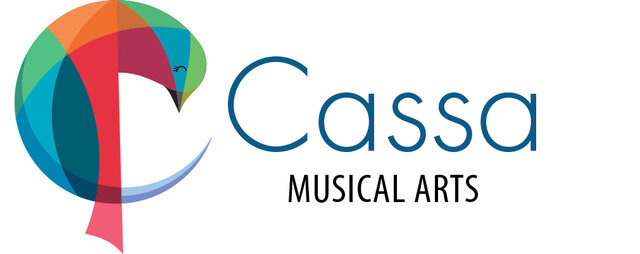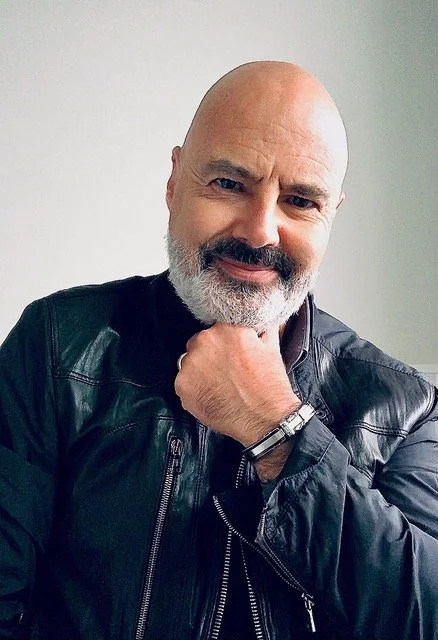Want to get to know our fabulous, internationally-regarded 2023 piano clinician? Here’s a brief interview with Cassa expert and piano program coordinator Eric Nyland, in which Dr. Fournier shares his wisdom and his inspiration!
Transcript
Eric Nyland: Hi, Michelle. Thanks so much for joining us here. We're really excited to have you as a 2023 clinician for a 30th anniversary.
I'm wondering if you can tell us a few things about ourselves for potential
students.
A few very quick questions. The first one of which is, how did you get into
music?
Michel Fournier
▪ ▪ Ah, well, as, as far as I remember as a very small child, ▪ we had old records at home and I kept listening to them over and over any.
It was not only classical music but it was all kind of music and I ▪ ▪ remember
my mom telling me that she had to stop me to, to do it because I just wanted
to do it.
So it was always part of my life. , and then later I have an older sister.
She had piano lessons at her, her school.
So we got a piano at home and then she was practicing, she was learning music pieces and I was observing her and, , even if she got mad at me for doing that, I was playing her pieces like by ear.
And so so it bugged her a lot, but I thought it was fun for the music and for
bugging her also.
And then, , well, eventually she became also a professional musician. She’s a
composer.
So it’s pretty much, in the family.
Eric Nyland
Wow, it's incredible. And, and now that you've, you know, obviously you've now had your form of training many years ago and you've been working for, for
decades as a professional musician, as a pianist.
What now motivates you as a musician.
Michel Fournier
▪ ▪ I would say learning, learning ▪ as a musician as organized, I like to learn new repertoire, like ▪ ▪ knowing new music.
Like for, for example, a few weeks ago, a violinist asked me for doing a recital and there was a piece by Josh in a school ▪ ▪ like impressions of childhood,
which is really difficult for the piano.
So I look at the score and I said, no, I can't do this, you know, it's too much
work and everything.
So I slept on that. And then I said, I might have a second look at the music.
So I looked at the music and then, ▪ okay, let's challenge myself. I like to learn, so learn it.
So I learned it. ▪ So the process of learning is is really a big motivation.
The challenge of sharing the music with the people, ▪ ▪ ▪ ▪ which, ▪ which I like very much.
And ▪ ▪ also I like to take a repertoire that I have played for decades.
Like since my twenties ▪ and find a new perspective, a new way of approaching the work, discovering things that I didn't notice before.
And I said, wow, I played this ▪ the in such and such way, but now I see it
different.
▪ So I relate all this to the process of learning and perhaps, I don't know,
evolution.
Eric Nyland
▪ Wonderful. That's great. So, as as a professional musician who embodies
this sense of lifelong learning, hopefully, we're all striving for what is it about
teaching that invigorates you the most?
What is it that you enjoy most about, about teaching?
Michel Fournier
▪ ▪ It's really when I, when I'm teaching, well, first I think for me, teaching is above all artistic activities that I do professionally.
It's the thing, the thing that I think is the most rewarding for me ▪ and what I
like is when I see the face of a student light up when ▪ the student realized
that he couldn't do something and then suddenly he can do it.
This is the biggest reward. And I like to, to work really of course, with a long-term perspective with the students that, that I have on the long term.
But my goal is always that okay, after half an hour or after 45 minutes or after one hour, I want to make a difference.
So it's important to me that something will have changed and that I will have
make a difference about something, , for a student.
And, , you know, over the years, ▪ , I acculated knowledge and musical experiences and for me, ▪ the most important thing is to transmit, to give back, to the next generation or to whoever takes lesson, you can't, not just have knowledge and experience and keep it for yourself.
Eric Nyland
Fabulous. , and so if you have a student who is, who's been working in or, or if you're meeting another student and and they're telling you, you know what
I'm so inspired by the work I'm doing at the piano, that or whatever instrent
that I want to become a professional.
▪ What advice would you offer them?
Michel Fournier
▪ ▪ ▪ The princess, the main advice would be work discipline ▪ ▪ in French riga, can you say rigor?
▪ ▪ Yeah. These three things are so important and persistence also.
▪ like sometimes things go well and sometimes it's more difficult but in difficult moments, you have to keep the faith, the passion and the love of music.
And ▪ ▪ you know, life is not easy by definition, but it can be fun if you decide
that this is what you want.
So don't take no for an answer ▪ or something that doesn't work then okay.
It didn't work but don't abandon. Say okay, what did I, why did it not work?
Is it for such and such reason ▪ or whatever?
So, so I think persistence work and of course, passion and love of music.
And if one person, one artist wants to do this, ▪ ▪ I think it will happen ▪ ▪ in
whatever field as soloist, as a teacher, as a musician in the community.
But like professionally, I would say the most important is the work, the rigor ▪
and the persistence.
Eric Nyland
▪ ▪ That's, that's excellent. ▪ I find that deeply inspiring myself. ▪ ▪ ▪ Great.
▪ ▪ ▪ ▪ ▪ Thank you so much Michelle for, for answering these few questions.
I know we have a lot of students in Calgary who know you already from now
performing arts festival.
You adjudicated me in Beethoven's first piano concerto before I played it with an orchestra eventually.
And your advice was so helpful to me as a, as a musician.
So well, this is a great move forward to this smer with you and thank you for
sharing your wisdom here today.
Michel Fournier
Okay. Well, thanks to you and I'm really looking forward to work with all of
you and to work with the students. ▪ ▪ ▪ ▪ ▪ ▪ ▪ ▪ ▪ ▪ ▪

